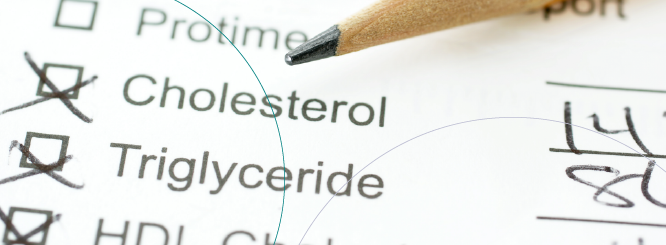
When discussing heart conditions, health, and wellness overall, two terms often come up: triglycerides and cholesterol. Both of these substances play a crucial role in the body but they do have a difference in function which impacts health and overall concerns—knowing the difference that both triglycerides and cholesterol are vital for any individual trying to manage their health, especially for those who will have bariatric treatments.
In this blog, we will talk about some of the most frequently asked questions about triglycerides and cholesterol, what the difference between the two is, with an approach to each of their roles, how they can affect health, and what are the best options for treating and managing them.
At LIMARP in Tijuana, Mexico we know the difference and offer some of the latest and specialized treatment. With highly experienced staff and medical professionals, anyone searching for comprehensive medical care can expect constant care and the latest in treatments and methods to help you achieve your health goals.
What are Triglycerides?
Triglycerides are a type of fat (lipid) that is found in the blood. When eating, the body converts any excess of calories it doesn’t need to be used right away into triglycerides. These triglycerides are then stored in fat cells and are used later to release energy in between meals. A high level of triglycerides in the blood is a condition that is called hypertriglyceridemia, which can increase the risk of heart disease.
Key Points about Triglycerides:
- They are the main type of fat stored in the body.
- A high level of triglycerides is often directly linked to a diet that consists of refined carbohydrates and sugars.
- Levels above 150 mg/dL are considered elevated.
What is Cholesterol?
Cholesterol is a moldable fat-like substance that is found in every cell inside the body. It plays a vital role in producing hormones, vitamin D, and substances that help in digesting foods. Although, having a high level of cholesterol in the bloodstream can increase the risk of heart disease. It can move through the blood on proteins called lipoproteins. These two types are the ones most people hear about, they are low-density lipoprotein (LDL) and high-density lipoprotein (HDL).
Key Points about Cholesterol:
- LDL is usually known as “bad cholesterol” because it can bring on a buildup in the arteries.
- HDL is “good cholesterol” because it can help in removing it from the bloodstream.
- A total level lower than 200 mg/dL is generally considered healthy.
Triglycerides and Cholesterol: How Are They Different?
When it comes to knowing how to manage your heart health, understanding the difference between triglycerides and cholesterol is key. Both of them are types of lipids (fats) that are found in the bloodstream but they each serve different purposes and carry their unique health risks, knowing the difference is vital for proper treatment.
Although both triglycerides and cholesterol are types of lipids that circulate the body via the bloodstream, they do have a difference in each of their functions in the body. Triglycerides mainly store unused calories and provide energy, while for the other it’s used to build cells and make certain hormones. Both of these are necessary for life, but when their levels get drastically elevated, they can become a very high-risk factor for heart disease.
Key Difference:
- Function: Triglycerides store energy, while on the other hand, while for the other one is involved in building cells.
- Health Risks: High triglyceride levels are connected to obesity, diabetes, and metabolic syndrome, while high levels are associated with heart disease and stroke.
We know the difference, that triglycerides act as the body’s energy reserve. It turns unused calories into fat that can later be used to tap into at a later time when the body requires it for energy. However, a difference is noted when consuming more calories than the ones that can burn, particularly from a source of refined sugars and carbohydrates, which can cause the triglyceride levels to rise. A high triglyceride count can lead to some very serious health conditions like heart disease, fatty liver disease, and pancreatitis.
Doing tests and managing and having control over triglyceride levels usually involves lifestyle changes, these can range from eating a balanced diet, doing regular exercise, and limiting alcohol consumption, which can make all the difference in adopting said changes more easily.
While it is essential for building cells and producing certain hormones, the difference is not all completely “good”. In some cases low-density lipoprotein (LDL), also known as “bad cholesterol”, can build itself up in the arteries, range from blockages that increase the risk of heart disease and stroke. On the other hand, the difference in having a high-density lipoprotein (HDL), or “good cholesterol”, helps remove it from the bloodstream, lowering risk. Managing levels typically consists of minimizing the amount of saturated fats in your diet, quitting smoking, exercising, and in some cases taking certain medications like statins.
What Causes High Triglycerides and Cholesterol?
Several factors can lead to high levels. Lifestyle choices, diet, and genetics also play a role, knowing the difference can aid in its rapid treatment.
Common Causes of High Triglycerides:
- Eating too many refined carbohydrates and sugary foods.
- Being overweight or obese.
- No physical activity.
- Smoking or excessive alcohol consumption.
- Uncontrolled diabetes.
Common Causes of High Cholesterol:
- Diets high in saturated fats and trans fats.
- Lack of exercise.
- Smoking.
- Family history.
- Certain medical conditions, such as hypothyroidism.
If you feel you’re at risk due to genetics, lifestyle, or underlying conditions like diabetes, it’s critical to keep an eye on your triglyceride and cholesterol levels often, monitoring the range, blood tests can help track your progress.
While the right type of diet, exercise, and medical treatments can make range, they all offer to make a huge difference in achieving a lower risk of heart disease.
For individuals who struggle with obesity, and losing weight, elevated range levels of both triglycerides and cholesterol are very common. The good news is that bariatric surgery, gastric bypass, or a gastric sleeve, range and make a difference in drastically improving lipid levels. At LIMARP, our comprehensive bariatric program offers personalized solutions that range from going beyond weight loss — they help patients achieve long-term heart health by addressing underlying issues like high triglycerides and cholesterol.
At LIMARP, we are the difference in comprehensive bariatric programs, we offer a range of personalized solutions that go beyond weight loss — they help patients achieve long-term heart health by addressing underlying issues like high triglycerides and cholesterol.
What Are the Health Risks of High Triglycerides and Cholesterol?
Both high triglycerides and high cholesterol range levels are dangerous for your health, especially when they happen at the same time, they may have some level of difference of which certain issues can notably raise the risk of heart disease.
Health Risks of High triglycerides:
- Pancreatitis: Having a very high range of triglycerides can cause inflammation of the pancreas.
- Heart disease: A high-range triglyceride count is often a sign of other conditions that increase the risk of heart disease.
- Fatty liver: Excess triglycerides can lead to a range of comorbidities such as fatty liver disease, which can advance liver damage.
Health Risks of High Cholesterol:
- Atherosclerosis: Cholesterol can build up in the walls of the arteries, narrowing or blocking arteries.
- Heart attack: High-range triglycerides are often a sign of other conditions that bring about a heart attack.
- Stroke: Cholesterol buildup inside the arteries providing blood to the brain can result in a stroke.
How Can You Lower Triglycerides and Cholesterol?
Managing triglyceride and cholesterol levels range from lifestyle changes and in certain cases medications, but it does make a difference in obtaining a healthier outcome. Frequent checkups are vital for understanding where you stand and what measures you can take to maintain healthy levels.
Ways to Lower Triglycerides:
- Cutting back on sugar and refined carbohydrates: Reducing the range of intake of sugary foods, sodas, and simple carbs can help lower triglycerides.
- Exercise regularly: Physical activity can increase HDL (good cholesterol) range and can help in lowering triglycerides.
- Lose weight: If overweight, even a small fraction of weight loss can help lower your triglyceride levels.
- Limit alcohol: Excess alcohol consumption can notably increase triglyceride levels.
- Take medications: In some specific cases, doctors can prescribe a range of treatments, fibrates, niacin, or omega-3 fatty acids to help lower triglycerides.
Ways to Lower Cholesterol:
- Eating heart-healthy foods: Opt for foods that range low in both saturated fat and trans fats, including a wider range of fiber-rich foods like oats, fruits, and vegetables.
- Exercise: As with triglycerides, regular physical activity can raise HDL cholesterol and lower LDL cholesterol range.
- Quit smoking: Smoking lowers the range in good cholesterol, so the difference in quitting is a vital option for heart health.
- Managing stress: Chronic stress can negatively impact good cholesterol levels, so finding a range of ways to wind down and relax can be helpful.
- Taking statins: When lifestyle changes just aren’t enough, a doctor may prescribe statins to lower cholesterol.
Bariatric Surgery and Lipid Levels
For individuals struggling with obesity, weight loss through bariatric surgery can dramatically affect triglyceride and cholesterol range levels in the body.
Studies show that procedures like gastric bypass and gastric sleeve surgery, can greatly lower triglyceride range levels and improve cholesterol overall.
This happens because weight loss can help improve the body’s metabolism and reduce the range of inflammation, both can contribute to better managing lipids.
Benefits of Bariatric Surgery on Triglycerides and Cholesterol
- Lower Triglycerides: Weight loss can lead to improving insulin sensitivity and range in a difference of reduction in triglyceride production.
- Improved Cholesterol: Bariatric surgery makes a difference as it can increase HDL and decrease LDL, this range can provide better overall heart health.
How Can You Monitor Triglycerides and Cholesterol?
Keeping an eye on triglyceride and cholesterol levels regularly is vital and can make all the difference, especially if there is a history of heart disease and other related conditions. A healthcare provider can perform a lipid panel, this can help measure the levels of triglycerides, LDL, HDL, and total cholesterol in the body overall.
Steps that Can be Taken to Monitor Levels
- Regular blood tests: Asking a doctor for a lipid panel test, that can be done during routine checkups.
- Understand your numbers: Understanding what the results mean is a major difference to understanding whether levels are within a healthy range.
- Track progress: If working to lower your triglycerides and cholesterol, keep track of your results over time to see improvements.
FAQs About Triglycerides and Cholesterol
Can You Have High Cholesterol and Normal Triglycerides?
It is possible to have high cholesterol while maintaining normal triglyceride levels. The difference is that cholesterol and triglycerides happen to be different types of lipids, as such they can be elevated independently of one another.
What’s Worse: High Triglycerides or High Cholesterol?
Both can be concerning and can increase the risk of heart disease. Although, a high LDL (bad cholesterol) is especially concerning because it directly contributes to the formation of plaque in the arteries.
How Can I Naturally Lower Triglycerides?
Lowering triglycerides naturally requires cutting out sugar and refined carbs, losing weight, and regular exercise, as well as limiting alcohol.
Can Triglycerides Be Lowered Without Medication?
Of course, life changes can significantly lower triglycerides without need for medication. Focusing on a healthy diet, regular exercise, and weight management.
Contact
If you need more information on how LIMARP can help you manage your triglycerides, cholesterol, and your overall heart health with bariatric surgery or want to know more about our personalized treatments, contact us today. Our team of professionals is dedicated to providing you with the highest quality care and support, in our state-of-the-art facility in Tijuana.
Resources
- American Heart Association: Understanding Fats and Cholesterol
- National Institutes of Health: Cholesterol Levels and Heart Health
- Mayo Clinic: Triglycerides – Why Do They Matter?
Bariatric surgery at LIMARP can be a crucial step in improving not just your weight, but your heart health too. Get in touch with us today to explore your options!


